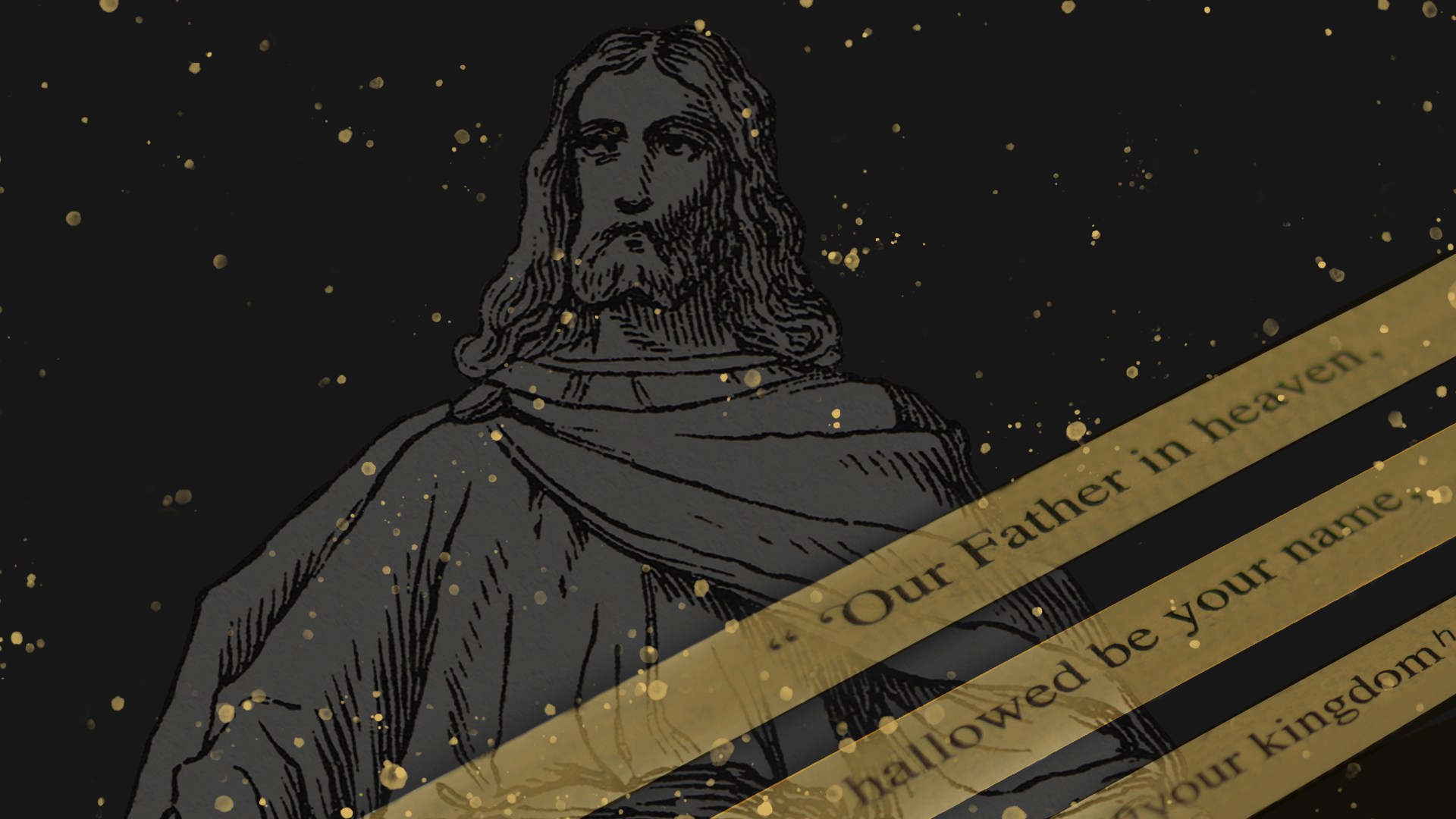It can be a challenge to say the Lord’s Prayer sincerely these days. Living in a modern industrialized society where food is processed, packaged, and abundant, do we honestly desire daily bread?
If you set out to craft a prayer at odds with contemporary Western values, you could not do much better than the Lord’s Prayer. The seven petitions that Jesus taught his disciples to pray (Matt. 6:9–13) run against the grain of our culture at every turn. It’s strange to plead “Thy kingdom come” while living in a country that long ago rejected monarchy in favor of popular sovereignty. It’s dissonant to confess “Thy will be done” in an age that celebrates autonomy and self-determination. Jesus confronts us with a subsistence prayer in a culture of affluence, a commitment to forgiveness in the face of outraged polarization, and preservation from temptation in a landscape defined by desire and indulgence. The Lord’s Prayer challenges our notions of what’s truly desirable; and that’s precisely the reason we need it so desperately.
In The Lord’s Prayer: A Guide to Praying to Our Father, Wesley Hill walks us through the seven petitions, inviting us to discover the meaning, vitality, and relevance of each phrase. Any author writing on an ancient prayer may feel pressure to unearth some previously undiscovered truth, but Hill offers a fresh reading that feels less like an archaeological dig than a tour through a living cathedral in which he himself worships. His approach emphasizes the One revealed through the prayer—Jesus Christ. “Jesus embodies and enacts the prayer He taught His followers to pray,” Hill writes. “Each petition of the Lord’s Prayer is a window onto Jesus’ character and actions before it is instruction for us.”
Many today are reluctant to pray to a divine Father. But Hill reminds us that “father” is first and foremost a relational term. The Bible uses it to describe God’s relationship to Israel, but its ultimate meaning is revealed in the Father’s relationship to his only begotten Son. As Hill observes, “God’s fatherhood must always and only be understood through His unity with His self-giving Son. Any picture of God as ‘Father’ that leads us to think in terms of domination and cruelty rather than of humble service and unending love is not a true understanding of the God and Father of our Lord Jesus Christ, ‘who loved us and gave himself for us’ (Gal. 2:20).” When Jesus invites us to pray to Our Father, he’s granting us the same “breathtaking intimacy” he enjoyed as the Son.
In a sermon from the early fifth century, Augustine counseled a group of candidates for baptism to say the Lord’s Prayer daily because it would remind them that the “the Only Son hath numberless brethren; who say, ‘Our Father, which art in heaven.’ So said they who have been before us; and so shall say those who will come after us.” Augustine’s prediction proved prescient. Over the centuries, the prayer has been an essential part of daily devotion for most Christian communities—Orthodox, Catholic, and Protestant.
It’s fitting, then, that Hill brings representatives from these various traditions to the table: Imagine a dinner party where Martin Luther and Pope Benedict XVI talk about the nature of petitionary prayer, Augustine and Calvin weigh in on sin’s true depths, and Karl Barth and Sarah Coakley discuss the nature of God as Father. Though these theologians arrive at differing conclusions on some substantive issues, their voices harmonize around a prayer common to all believers. This plurality of voices is especially appropriate when reflecting on a prayer whose concerns are communal, not individualistic. We ask our Father to provide our bread, to forgive our debts, to spare us temptation, to save us from the evil one.
The Lord’s Prayer is transformative within daily devotion, reminding us that our highest, deepest longing should be for God himself. As Hill observes, “the point isn’t so much to ask God for more things but for us to realize that God transcends our limits and frustrations and that our saying so befits His splendor.”
Hill’s guide reveals the character and mission of the One who taught us to pray. In it we find Jesus—one with the Father, becoming living bread to nourish the world, facilitating forgiveness of sin through his own sacrificial gift on the cross, and redeeming us from the power and control of the Evil One. John Chrysostom, an early church father, once observed that “prayer is the light of the soul.”
If your relationship with the Lord’s Prayer is fraught with ambivalence, this slim devotional volume will bring you into the radiance of a Savior who is the light of the world.
Tina Boesch is a writer, editor, and designer living in Louisiana. She is the author of Given: The Forgotten Meaning and Practice of Blessing (NavPress).











